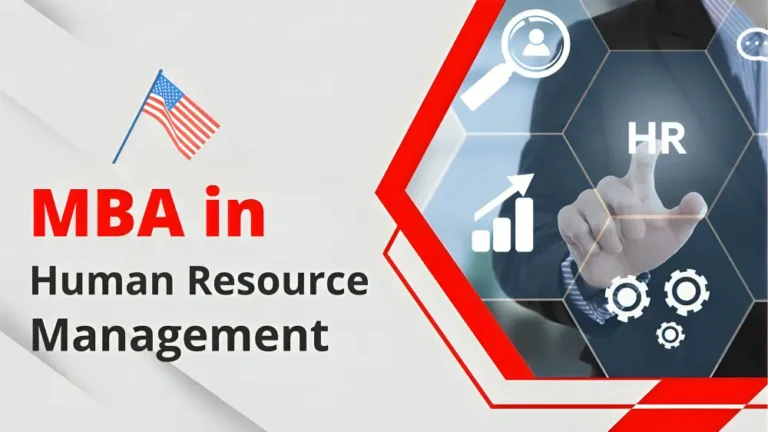What is an Executive MBA? A Complete Guide
Professionals are always looking for methods to improve their abilities and progress their careers in the cutthroat corporate environment of today. The Executive MBA (EMBA) is one such well-liked choice. What is an Executive MBA, though, and how is it different from a regular MBA? The fundamentals of an Executive MBA, as well as its advantages, prerequisites, curriculum, and potential career effect, will all be covered in this article.
Executive MBA | Meaning
A graduate-level business degree called an Executive MBA (EMBA) is intended for executives and working professionals who wish to improve their managerial and leadership abilities without taking a vacation from their jobs. An EMBA is designed for mid-to-senior-level managers, entrepreneurs, and business leaders, as opposed to a typical MBA, which serves recent graduates or professionals in their early careers.
Why study an executive MBA?
- Reach Professional Goals (and Develop Personally): Developing your talents is the main goal of an EMBA, not merely earning a fancy title. You’ll hone your critical thinking skills, acquire sophisticated leadership skills, and discover how to make long-term strategic choices.
- Networking Goldmine: You will be surrounded by classmates, instructors, and guest speakers because this program type is designed for those who already have professional experience.
- Increased Earning Potential: Let’s face it, the increase in your income is one of the main benefits of earning an EMBA. After finishing the program, graduates frequently see notable pay increases.
- Long-Term Career Boost: An EMBA is for those who envision themselves in a leadership position in the future, as you have likely read. It can help you get there more quickly. It is intended to help you quickly advance in your profession; many graduates go on to secure higher-paying, more influential positions.
What are the requirements for an executive MBA?
- Work Experience: The majority of EMBA programs require five to ten years of work experience, preferably with some leadership duties. They are seeking individuals who have experience leading teams, overseeing projects, or making critical choices.
- Background in academia: You’ll need a bachelor’s degree, but don’t worry, you’ll be OK if you have that. Often, your professional background is more significant than your undergraduate GPA.
- Leadership Accomplishments: Being employed isn’t enough; you also need to demonstrate your effect. Have you spearheaded strategic objectives, started a project, or managed a team? Real-world examples of your success are what schools want to see.
- GMAT/GRE: Fortunately, a lot of EMBA programs do not require the GMAT or GRE, particularly if you have a strong professional background. Some may request it, but if your career speaks for itself, you can usually skip it.
Duration and program scheduling
Professionals with hectic schedules were the target audience for EMBA programs. They are renowned for offering coursework that is comparable to that of standard MBA programs but in a more streamlined structure and with schedules that let you fit it around your work schedule.
Including summers, an executive MBA typically takes two years to finish. Classes are usually held on Fridays and weekends. You will work and engage in intense study at the same time because this timetable is made for working professionals.
Executive MBA vs MBA
- Timing: You can start a standard MBA program early in your career, perhaps after a few years of work experience. Conversely, an EMBA is intended for those who have been in the game for a long time and wish to advance without pausing their careers, such as managers, team leaders, or even corporate directors.
- Who Attends: Early-career professionals seeking to establish a solid business foundation are present in an MBA program. Mid-to-senior level managers, executives, and entrepreneurs with years of expertise surround you in an EMBA program. Everyone contributes real-world thoughts, which allows for some quite engaging class conversations.
- The atmosphere: Because EMBA students are already well established in their occupations, lectures sometimes resemble high-level brainstorming sessions where seasoned professionals share what has and hasn’t worked in the real world. It is a real-time exchange of business expertise, not simply theory.
- What You Learn: If you want to develop a wide understanding of business, a typical MBA includes the fundamentals of finance, marketing, and operations. Advanced topics, including strategic decision-making, leadership, and handling difficult business problems, are all covered in detail by an EMBA. It’s more important to figure out how to break the rules—smartly, of course—than to study the rules.
EMBA tuition costs
The cost of many EMBA programs ranges from $150,000 to $220,000. Many EMBA programs do provide a kind of “bundle” at that price. This can include a variety of educational resources, such as books, and the potential for coverage for travel abroad. Your company may cover a portion of the tuition when you enroll in an EMBA program, which can assist you in covering graduate school expenses.
Is an executive MBA worth it?
You may improve your current management and business abilities by obtaining an EMBA. In many situations, you may keep working while pursuing this degree, and it may open up prospects for career progression and higher pay.
Conclusion
What is an Executive MBA, For mid-to-senior-level professionals looking to develop their careers without quitting their employment, an executive MBA is a potent tool. It improves networking, leadership, and strategic decision-making abilities, which frequently result in greater chances and higher pay. For individuals seeking leadership positions and a bigger company effect, the long-term advantages outweigh the expense.






